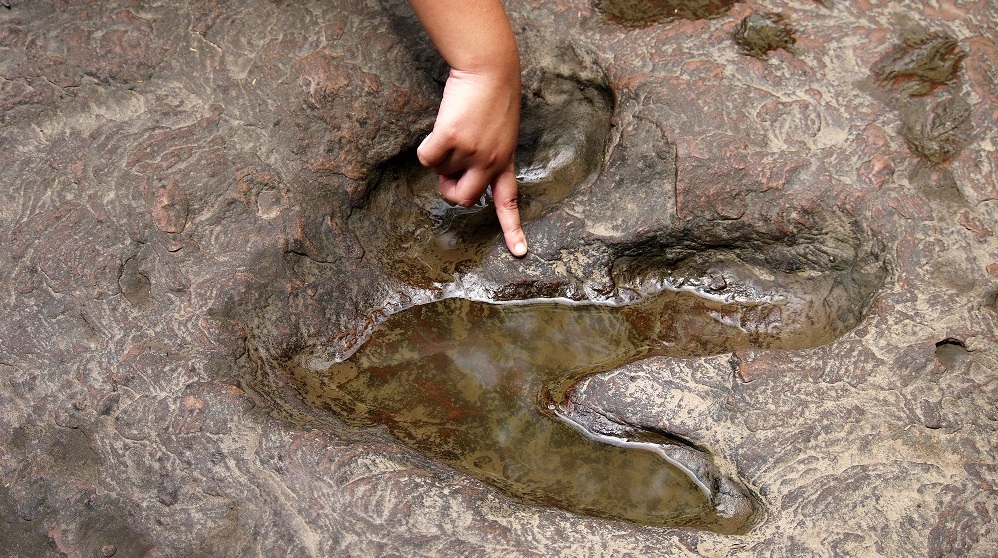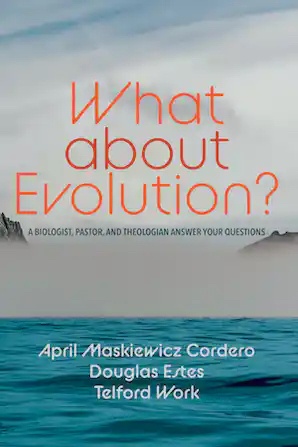
Shutterstock
The question of how the doctrine of creation fits in with evolutionary biology is never going to go away. As science advances, society changes, and the Church grows, every generation raises new questions. This short book is the work of three professors from US-based Christian colleges: a biologist, a Biblical scholar and a theologian. Every year they are confronted with curious or confused young people searching for answers on this topic. What About Evolution? is a distillation of their best answers, in accessible language for the general reader.
This extract is from April Maskiewicz Cordero, a biologist who walked away from God because she was told as a young person that she had to choose between Christ and evolution. Having has made the long journey back to faith, April is passionate that other young people should not have to go through the same process. She encourages the church to ‘adopt an open and conversational approach toward evolution’. Co-authors Douglas Estes and Telford Work share the same passion – that while they don’t expect us to agree on everything they say, we should commit to explore the Bible and science ‘with hope and joy!’
April’s story: Why do we need to talk about evolution and faith?
I don’t recall giving much thought to evolution while in high school, but during my first year in college at a large public university, I remember my biology professor telling the class that a person cannot believe in God and accept evolution. The basic argument was that evolution proved that there was no God. I found this puzzling, and I met with two different pastors who likewise told me that I must choose: either faith or evolution. The more I learned in biology courses, the more evidence pointed toward the reality of evolution. Since both sides were telling me that they were mutually exclusive, I made the conscious decision to give up my faith and any belief in a God or a higher power.
Fast forward to eighteen months after I graduated from college with a biology degree. It was 1989 and I, still an atheist, moved to Japan for a life adventure. My loneliness and boredom led me to read the only unread book written in English that I could find: the Bible. Reading from page one was a slow process, but thanks to my sister, who responded to many questions about the Old Testament via snail mail correspondence between Japan and the United States, I made the decision to rededicate my life to being a Christ follower, and shortly thereafter I came back to the States. I spent the next decade hiding my love of all things biology from my church friends and hiding my Christian beliefs from my science colleagues because everyone was saying that evolution and faith were incompatible.
During the 1990s, learning how to live out the Christian command to love the Lord with my mind (Luke 10:27) presented the biggest challenge for me. I was successful at loving God with my heart, soul, and strength, but I had to find a way to reconcile my faith, the Bible, and my acceptance of evolution. At the time, none of the pastors I knew would open-mindedly discuss evolution with me, and I couldn’t find any books on reconciling evolution and faith. Remember, this was before we could do a Google search.
Coming to a resolution was a slow and lonely process, but by the end of the 1990s, I came to understand that many parts of the Bible are interpreted today in ways that were not necessarily intended originally. For example, many biblical scholars agree that Genesis was not written as a scientific explanation of creation. This is supported by the fact that the orders of creation given in Genesis 1 and Genesis 2 are quite different. I also came to recognize that different books of the Bible were written at different times, for different groups of people, and that when viewed within their contexts, the messages from these books were even more beautiful and profound. I came to realize that taking the Bible on its own terms— not forcing it to answer questions or provide information it is not intended to address—allowed me to take science on its own terms. Two decades later, I consider it a privilege to speak at universities and churches about the compatibility of evolution and faith.
In churches and among Christian college students, it is still common to hear that evolution and faith are not compatible, that one must choose between them. But that is simply not true. There are millions of people—scientists, theologians, biblical scholars, and pastors included—who reconcile biological evolution with their faith. In fact, many of the most famous and influential Christian scholars and leaders of the last 150 years believed evolution was compatible with Christian faith. These include B. B. Warfield, C. S. Lewis, Karl Barth, Billy Graham, N. T. Wright, Pope Benedict XVI and Pope Francis, Philip Yancey, John Ortberg, and Tim Keller, to name just a few. If we dig a bit deeper into the perception that evolution and faith contradict each other, we often find that people are making incorrect assumptions about both evolution and creation.
Biological evolution is completely neutral about a higher power. It neither supports nor denies a creator. In fact, science cannot prove or disprove the existence of God. When some people claim that evolution “proves” there is no creator, they are overstepping the boundaries of science. Science cannot answer such metaphysical questions as whether or not there is a God.
A better way to think about evolution and creation is to focus on the fact that all Christians can agree that God created, and it was “good.” In this way, we are all “creationists” because we believe in a divine power who created. What we may disagree on, however, is how God created—the mechanism of God’s creation. Just because science can describe or explain how Earth came to be filled with diverse life-forms over four billion years does not leave any less room for God in the process. Science gives us the mechanism by which life develops, and Christianity gives us the agent behind that mechanism. When Christians speak about God as the creator, we are speaking about the entity behind the cause, not the causal mechanisms themselves. Therefore, a Christian can accept the science of evolution while still acknowledging God as the creator, because God is the agent and evolution is the process.
 What About Evolution? A biologist, a pastor and theologian answer your questions by April Maskiewicz Cordero, Douglas Estes, Telford Work (Eugene, Oregon: Cascade Books, 2022). 106 pages, £18. Extract used by permission of Wipf and Stock Publishers, www.wipfandstock.com.
What About Evolution? A biologist, a pastor and theologian answer your questions by April Maskiewicz Cordero, Douglas Estes, Telford Work (Eugene, Oregon: Cascade Books, 2022). 106 pages, £18. Extract used by permission of Wipf and Stock Publishers, www.wipfandstock.com.




